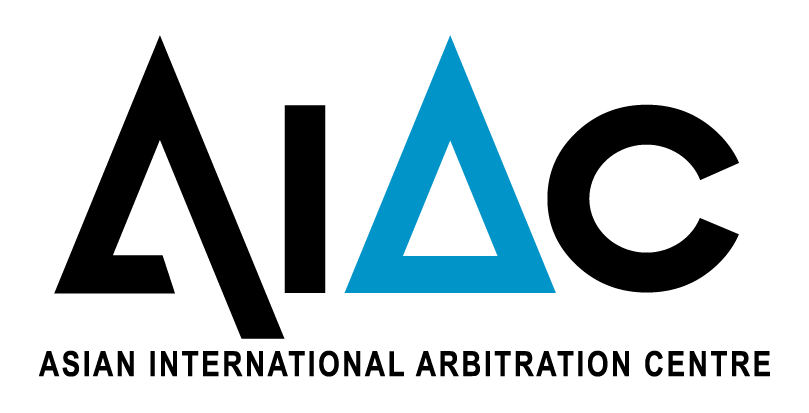KLRCA Talk Series: Dispute Resolution in Capital and Commodity Markets
Dispute Resolution in Capital & Commodity Markets
Disputes in Capital & Commodity Exchange needs to be resolved quickly due to high fluctuation in price movement and it is imperative to have a very robust arbitration mechanism in place.
The Capital and Commodity Market is primarily an institutional arbitration and is governed by Bye-laws, Rules and Regulations of the Exchange under the regulatory control of the Regulator of the jurisdiction. Globally, there are more than 150 countries who are members of a global organisation of regulators and there are an equal number of stock exchanges and commodities exchanges where buying and selling of debt, equity, commodities and various of other financial instruments are almost invariably hosted on computer based electronic trading systems which facilitate trades through satellites and other electronic means.
To give an early resolution to dispute, the Exchange with due approval from its Regulator, maintains a panel of Arbitrators in regional centres where hearings are held at locations which are close to investors.
In spite of many criticisms on the capital & commodities market in general, it is to be noted that dispute resolution mechanisms of these markets are faster and is less expensive than court litigation. It has proven to be fair wherein disputes are resolved between members of the exchange and their clients in respect of trades done on the platform of exchange. The current system was developed in the best interest of investors and even a small claim can be taken up.
The speaker will discuss various aspects of the dispute resolution mechanism both in the capital and commodities market, sharing a few examples on case laws from different jurisdictions. Role model arbitration mechanism of a couple of countries will be included in the discussion.
Speaker –
MR. CHANDRAKANT KAMDAR
Director and Joint Secretary of Chartered Institute of Arbitrators (CIArb India Branch)
Mr. Chandrakant Kamdar is currently the Director Secretary and Fellow of the Chartered Institute of Arbitrators. He is also a FICA & Panel Member – Fellow of Indian Council of Arbitration (ICA) India; a panel
arbitrator of the Dubai International Arbitration Centre (DIAC), SIAC and KLRCA Panel of Arbitrators and Adjudicators.
He is also listed on the Panel of National Stock Exchange (NSE) and Bombay Stock Exchange (BSE), which is among the top ten largest world markets. Besides that, he is also on the Panel of Multi Commodity Exchange of India Limited (MCX), National Commodity & Derivatives Exchange Ltd (NCDEX) and National Securities Depository Limited (NSDL).
Mr. Kamdar has acted sole arbitrator and on panel of 3 men arbitrators; wherein he acted as a presiding arbitrator in Capital and Commodities Market matters in India. He has also acted as arbitrator in over 700 various other financial and commercial matters.
Mr. Kamdar has participated and been invited to speak in various domestic and international symposiums. His articles on arbitration and money laundering were also published in various newspapers and magazines.
He has also conducted workshops and training courses on arbitration on the subject of Anti Money Laundering.
Mr Kamdar is presently the Director and Joint Hon.Secretary of the CIArb India. Besides that, he is also an approved Tutor Faculty Member for the Chartered Institute of Arbitrators (CIArb), who is in charge of CIArb approved training courses in India.
Intricacies in Capital & Commodity Market Arbitrations and the Need for Exchange Institutionalised Arbitrations
Participants will be able to understand trade related terminology, Exchange Rules, Regulations and Bye-Laws. Exchanges have a multiplicity of different methods of trading, such as Capital or Cash Market, Futures and Options, derivatives; so do Commodity Markets. Moreover, stockbrokers have their individual standard operating procedures which may not necessarily follow Exchange Rules & Regulations.
It must also be understood that there may be disputes not only between Brokers and their Clients, but between Brokers and sub-brokers as well. Of late, disputes between companies and their shareholders have also arisen. As such, the commodity market posed challenges peculiar to arbitrators.
The time has come for Exchange Arbitrators to have specialized knowledge and therefore training. Exchanges and the Regulating Authority would do well to institutionalise and train their specialist panel of arbitrators, as India has. This system has shown to work very well, with arbitration hearings being completed within 4 to 6 months.
Speaker –
DR DILIP K VIRANI
Director and Treasurer of Chartered Institute of Arbitrators (CIArb India Branch)
Dr Dilip is presently the Director and Treasurer of the Chartered Institute of Arbitrators (CIArb India Branch). He sits on the panel of the National Stock Exchange (NSE), Bombay Stock Exchange (BSE) and the Multi Commodity Exchange (MCX).
Being a practising arbitrator, he has sat as sole arbitrator and on 3 men panel of arbitrators, and being the presiding arbitrator for arbitrations related to Exchange in Capital and Commodity Market. He has also acted as arbitrator in various financial and commercial disputes.
Dr Dilip is also an approved Tutor Faculty Member for CIArb. He teaches regularly at various Indian law colleges and at CIArb training courses.
Moderator
Sabarina Samadi
Sabarina is a Partner in the Litigation and Dispute Resolution Practice in Messrs Zaid Ibrahim & Co. Prior to joining the firm in 1996, Sabarina practised law at a leading law firm in Kuala Lumpur, where she focused on commercial and banking disputes.
Sabarina is an accredited Adjudicator under the Construction Payment and Adjudication Act 2012 and is on the panel of the KLRCA. She is also an Associate of the Chartered Institute of Arbitrators, United Kingdom. Sabarina co-wrote the Malaysian section for ADR and Trusts: an international guide to arbitration and mediation of trust disputes by Grant Jones and Peter Pexton.


